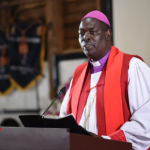The International Budget Partnership Kenya (IBP Kenya) has emphasized that for the 2024-25 revised budget and austerity measures to be effective, resources must be used as intended. This follows the ongoing public participation and consultations on the Supplementary Estimates (No.1) for the financial year 2024-2025.
Parliamentary departmental committees are currently reviewing these estimates with various Ministries, State Departments, and Agencies.
The Budget and Appropriations Committee is tasked with guiding the process, gathering public input, and reporting to the House by July 24. This will allow the National Assembly to review and consider the Supplementary Estimates and related legislation to implement the Revised Fiscal Framework and proposed expenditure cuts.
Due to the withdrawal of the Finance Bill 2024, which aimed to raise an additional Sh344.3 billion, the National Treasury has been compelled to adjust expenditure plans for the current financial year ending June 30 next year. President William Ruto declined to assent to the bill following public protests.
The Treasury has proposed reducing the 2024-25 budget from Sh3.99 trillion to Sh3.87 trillion in the Supplementary Budget. The revenue target, including collections by KRA, has been revised down to Sh2.9 trillion from Sh3.3 trillion.
As part of this adjustment, funding for major projects will face a Sh122 billion cut, along with reductions in allocations for the executive, judiciary, parliament, and counties.
“I direct that operational expenditure in the Presidency be reduced to remove allocations for the confidential vote, reduce travel budget, hospitality and buying of vehicles, renovations and other expenditures,” the President said when he declined to sig the Finance Bill, on June 26.
President Ruto has directed Parliament, the Judiciary, and county governments to collaborate with the National Treasury to implement budget cuts, aiming to fulfill his principle of “living within our means.”
However, budget experts caution that the government must ensure prudent Public Finance Management for the plan to succeed. Without effective management, there is a risk that the country could fall deeper into debt, with the budget deficit potentially widening to Sh954.8 billion, up from the Sh610.5 billion originally projected for the 2024-25 fiscal year.
“There is need for better use of resources and spending on area that are of positive impact to the economy. We might not be able to correct what has been done before but we can make a difference going forward, safeguarding the future,” IBP Kenya executive director, Abraham Rugo, said.
He spoke during a forum on austerity measures, which called for more public participation in the budget making process and proper use of public resources.
“In the last ten years, there has been no concerted austerity measures in Kenya as budget deficits have generally gone up over time,” he noted.
Lack of fiscal discipline and the embezzlement of public resources have been persistent issues in Kenya, exacerbated by the country’s heavy borrowing to cover budget deficits.
The government is expected to address wastefulness in state agencies by eliminating duplications and closing loopholes that facilitate fund embezzlement. John Kinuthia, Senior Programs Officer at the International Budget Partnership (IBP Kenya), highlighted that fiscal discipline and parliamentary oversight have been significant challenges leading to inefficiencies.
Experts advocate for strict adherence to Public Finance Management (PFM) rules, which govern how public resources are collected, allocated, spent, and accounted for. Official data reveals that low budget absorption at both national and county levels, coupled with poor PFM, has hindered development.
Additionally, corruption is estimated to divert about a third of the annual budget, with recurrent expenditure—including salaries, operations, and maintenance—taking up the largest portion of the budget.



